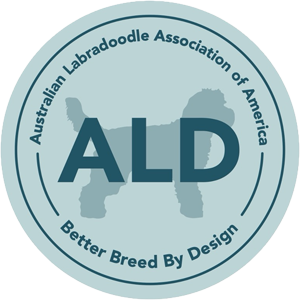Certified Therapy Dogs
Therapy dogs provide an important and needed service to a community. They can be used in visiting nursing homes, hospitals, hospice care, schools, special needs programs and much more. Studies show that human-pet interaction actually lowers heart-rate and blood pressure. Based on that information many animal therapy programs are in place throughout the country.
An example of one of these programs is the Delta Society that was founded over 30 years ago. Years of research has proved the beneficial effect of having contact with a responsive animal.
Benefits to dog ownership, the Delta Society says, include:
· Children who have dogs tend to be more self-reliant, sociable, and less selfish than children without pets.
· Elderly people with dogs are better able than non-pet-owning elderly people to cope with daily activities.
· Owning a dog gives isolated people a routine, a sense of purpose, and a sense of fulfillment that helps prevent depression and loneliness.
· Stroking and patting a dog can be relaxing, which is measured by a slower heart rate and a drop in blood pressure.
· Owning a dog can help reduce the risk of asthma.
· Dog owners are more likely to survive heart attacks than non-pet owners are.
· The presence of a dog can ease the effects of Alzheimer's.
· People with dogs have been found to have lower cholesterol and triglyceride levels when compared to people who do not.
There are many dogs that may make a good pet, however not every dog can be a therapy dog. The Delta Society refers those that do are "dogs with halos." The screening for a hospital program is intense. If you would like more information I would be happy to talk to you about this.
An example of one of these programs is the Delta Society that was founded over 30 years ago. Years of research has proved the beneficial effect of having contact with a responsive animal.
Benefits to dog ownership, the Delta Society says, include:
· Children who have dogs tend to be more self-reliant, sociable, and less selfish than children without pets.
· Elderly people with dogs are better able than non-pet-owning elderly people to cope with daily activities.
· Owning a dog gives isolated people a routine, a sense of purpose, and a sense of fulfillment that helps prevent depression and loneliness.
· Stroking and patting a dog can be relaxing, which is measured by a slower heart rate and a drop in blood pressure.
· Owning a dog can help reduce the risk of asthma.
· Dog owners are more likely to survive heart attacks than non-pet owners are.
· The presence of a dog can ease the effects of Alzheimer's.
· People with dogs have been found to have lower cholesterol and triglyceride levels when compared to people who do not.
There are many dogs that may make a good pet, however not every dog can be a therapy dog. The Delta Society refers those that do are "dogs with halos." The screening for a hospital program is intense. If you would like more information I would be happy to talk to you about this.
Labradoodles were initially bred for the main purpose of assisting blind and disabled people who have allergies to other types of mainstream dogs. You will find Labradoodles also being trained as hearing dogs for the deaf or hard of hearing, seizure dogs, service dogs for those with autism and those who need to be alerted to low blood sugar or other medical issues. Trainers have found that Labradoodles are an excellent selection to train for a work and companion dog because of their unique combination of intelligence, athletic ability, trainability, friendliness and loyalty.


